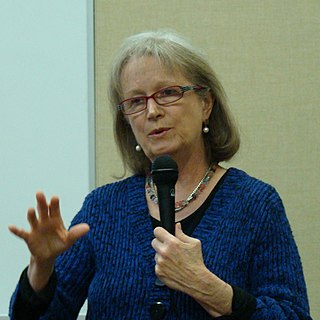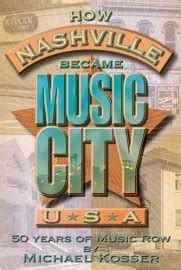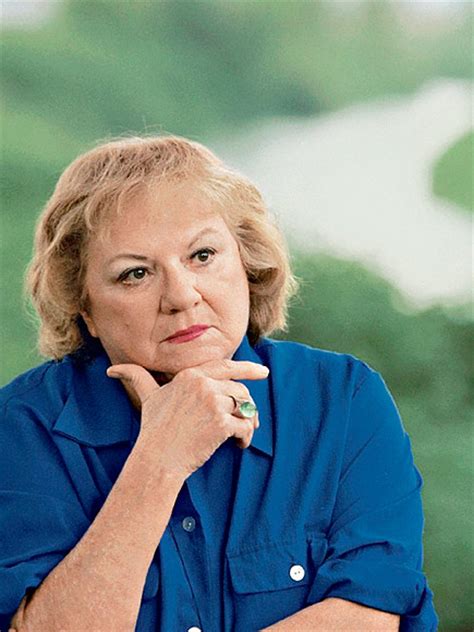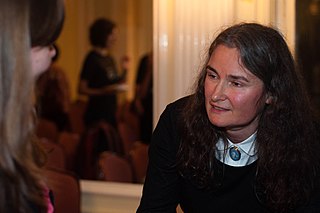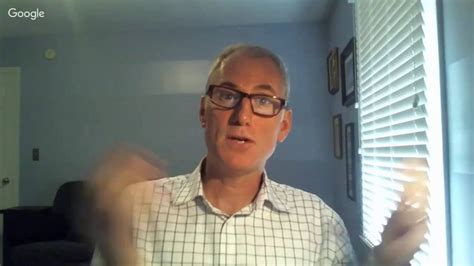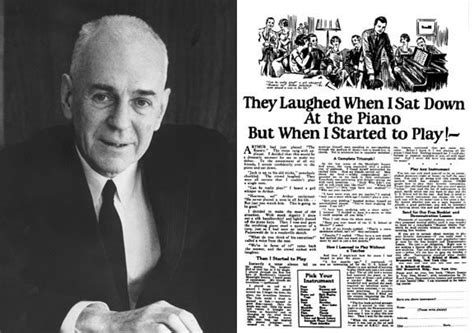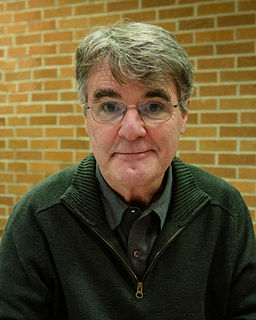Top 1200 Readers Quotes & Sayings - Page 3
Explore popular Readers quotes.
Last updated on December 4, 2024.
People will ask me, "How do you approach writing books for young readers differently than for adults?" My answer is always: I don't change anything about the story itself. I'm going to tell kids the way things really were. What I don't do - and this is the only thing I do differently in writing for kids - is that I don't revel in the gory details. I allow readers to fill in the details as necessary. But I don’t force kids to have to digest something they’re not mature enough or ready for yet. If they are, they can fill in the details even better than I could, just with their imaginations.
I dislike that premise implies that a fiction writer is incapable of dreaming up stories that can bring readers to tears, that if you are lucky enough to be living a pretty sedate life ,as I am, you've got nothing worthy of writing about, that you're incapable of making a reader's gut wrench.Frankly, that's what makes readers nervous, the sorcery of you or me or any good fiction writer making up characters who feel like real people, of telling a story that feels true but isn't.
I wasn't trying to write a corrective novel - that would just end up tasting like medicine, and I tried to stay away from polemics as best I could. I think that, if anything, Fobbit is my way of showing readers there's another side to war - the backstage of combat, if you will. If you play a word association game with Americans and say "war," what's the first thing that comes to mind? Soldiers running across a battlefield through a hail of bullets, right? Rambo, smoke, explosions. In Fobbit, I hope readers will see something a little different
Books are just dead words on paper and it is the readers who bring the stories alive. Previously, writers wrote a book and sent it out into the world. A couple of months after publication letters from readers might arrive. And, leaving aside the professional reviews, it is really the reader's opinions that the writer needs. They vote for a book - and a writer - with their hard earned cash every time they go into a bookstore (or online - that's my age showing!) and buy a book.
When writers are self-conscious about themselves as writers they often keep a great distance from their characters, sounding as if they were writing encyclopedia entries instead of stories. Their hesitancy about physical and psychological intimacy can be a barrier to vital fiction. Conversely, a narration that makes readers hear the characters' heavy breathing and smell their emotional anguish diminishes distance. Readers feel so close to the characters that, for those magical moments, they become those characters.
Especially on Broadway, composers and lyricists fretted over their creations, obsessed over every rhyme, every critical chord or interval. The stakes were so high. On Broadway, people were watching and judging, especially newspaper critics who knew a thousand ways to slice and dice a songwriter for the entertainment of hundreds of thousands of faithful readers. There was no anonymity for the Broadway songwriter. Even the best could find themselves stripped naked the morning after by the tastemakers and their readers.
I think smart aggregation is a service to readers. And we do it, too ... . Whether it's a politics page and you want Dan Balz to tell you what is he reading, what does he think are the smartest articles today on the elections or the primaries. So, I think aggregation is great ... . So I'm all for aggregation. And the more eyeballs we can get to our content, the better. We do want readers to be educated and to understand the difference between, what is a source that you can trust as opposed to just rumors out there. And the difference between just repurposing content and not crediting it.
Steinberg occupies a position that is very dear to those of us who've held it over the years: sports columnist at The Post. If all he wants to do is be popular--and I think Dan is better than that--then the readers of The Washington Post sports section won't be very well served. Telling readers how great they are as sports fans was never one of my priorities. The only thing worse than people who can't stand to hear an unpopular or unflattering opinion is those that are too afraid to state one.
The only thing I hope for is that, regardless of what the outward world is for different people, different nations, I hope their internal world is similar. And if I, hopefully, have managed to somehow describe my inner world in this book, all I count on is that it will have some resonance among the American readers, or, at the very least, the American readers will treat this book as a kind of a guidebook for my inner world, strange as it may appear.
There has to be a kind of grassroots push, a movement, as it were, against the inherent isolationism of American capitalism as practiced in the publishing industry. There need to be grants and government support and a few publishers, mainstream and independent, who are not afraid to challenge American readership. We need to build a network of translators, publishers and readers. We hope that our annual anthology might provide an upsurge in interest for European fiction and then, as we publish it every year, become a habit to many readers.
Most readers look at the photograph first. If you put it in the middle of the page, the reader will start by looking in the middle. Then her eye must go up to read the headline; this doesn't work, because people have a habit of scanning downwards. However, suppose a few readers do read the headline after seeing the photograph below it. After that, you require them to jump down past the photograph which they have already seen. Not bloody likely.
You can get away with breaking all of the other rules at least once in a while, but you can't get away with breaking this one. Readers will accept almost anything from you if you don't make them feel they have wasted their time and money. Remember, you can bore readers in a lot of different ways. It doesn't necessarily take a dearth of action; too much action can get you the same result. Everything in writing, like in life, requires balance.
Digression is my passion. I love telling the main stories, but in some ways, what I love most is using those narratives as a way of stringing together the interesting stories that people have kind of forgotten, and that are kind of surprising. The problem is, how do you pare stories away so that the book doesn't become a distracting jumble of material, and readers lose focus? In my experience, there's really only one way to do that. I pack it all in with the rough draft, then count on myself and my trusted readers to tell me what's good and what's not good.
It is possible to argue that the really influential book is not that which converts ten millions of casual readers, but rather that which converts the very few who, at any given moment, succeed in seizing power. Marx and Sorel have been influential in the modern world, not so much because they were best-sellers (Sorel in particular was not at all a widely read author), but because among their few readers were two men, called respectively Lenin and Mussolini.
I get letters from two kinds of readers. History buffs, who love to read history and biography for fun, and then kids who want to be writers but who rarely come out and say so in their letters. You can tell by the questions they ask - How did you get your ?rst book published? How long do you spend on a book? So I guess those are the readers that I'm writing for - kids who enjoy that kind of book, because they're interested in history, in other people's lives, in what has happened in the world. I believe that they're the ones who are going to be the movers and shakers.
The Librarian considered matters for a while. So…a dwarf and a troll. He preferred both species to humans. For one thing, neither of them were great readers. The Librarian was, of course, very much in favor of reading in general, but readers in particular got on his nerves. There was something, well, sacrilegious about the way they kept taking books off the shelves and wearing out the words by reading them. He liked people who loved and respected books, and the best way to do that, in the Librarian’s opinion, was to leave them on the shelves where Nature intended them to be.
Addison writes with the ease of a gentleman. His readers fancy that a wise and accomplished companion is talking to them; so thathe insinuates his sentiments and taste into their minds by an imperceptible influence. Johnson writes like a teacher. He dictates to his readers as if from an academical chair. They attend with awe and admiration; and his precepts are impressed upon them by his commanding eloquence. Addison's style, like a light wine, pleases everybody from the first. Johnson's, like a liquor of more body, seems too strong at first, but, by degrees, is highly relished.
Without the book business it would be difficult or impossible for true books to find their true readers and without that solitary (and potentially subversive) alone with a book the whole razzmatazz of prizes, banquets, television spectaculars, bestseller lists, even literature courses, editors and authors, are all worthless. Unless a book finds lovers among those solitary readers, it will not live . . . or live for long.
The New York Times and PBS are gatekeepers of a sort. And they perform that role of gatekeeping with a set of rules and aspirations about where they want to lead their viewers and their readers. They value objective facts, and they attempt to transmit a comprehensive view of the world. And they do have values. And they do lead their viewers and their readers to certain conclusions. But it's different than such monopolies as Apple or Google which are dissecting information into these bits and pieces, which they're then transmitting to people. And it's about clicks.
For centuries poets, some poets, have tried to give a voice to the animals, and readers, some readers, have felt empathy and sorrow. If animals did have voices, and they could speak with the tongues of angels-at the very least with the tongues of angels-they would be unable to save themselves from us. What good would language do? Their mysterious otherness has not saved them, nor have their beautiful songs and coats and skins and shells and eyes.
I want the kind of readers who remain children at any cost. I can tell them at a glance: loyalty to that first enchantment guards better than any cosmetic; than any diet, against the insults of age. But alas for such readers, who would huddle safe and sound in the asylum of their credulous enchantment as if in the womb-our enervating century offends them by its chaos, its fidgets of light and space, the host of its excuses for dividing , for rending oneself from others and from oneself.
I live in the same house I’ve lived in for 25 years. I haven’t gone off and bought mansions, you know, even though my subject is living… living in a mansion wouldn’t do for my readers. I have to keep my credibility alive with my readers, so we’re in the same place. I just make that place nicer and nicer. And… and that’s a secret. And people don’t know that. People think, oh, she lives in this fabulous place, it’s the same old place. It started out like a farm, it got to be a farmette, then it got to be an estatelet. I built a wall, it helped a lot. But it’s the same place, the same grounded nature.
I think our literary tradition has to evolve, has to explore its form and its spirit through writers and thinkers, rather than let the lazy, easy traditional narrative - which is controlled by the publishing industry - roll all over the readers and dominate the market. I think our readers and cinemagoers have been trained to read and watch very mainstream stuff. It's like being given sleeping pills. It sends people to a non-reflective sleep state.
Along the way, about certain things, you realize, "I don't know anything about this." You think, "Is this going to sound ridiculous?" So I pestered more than a hundred different people over the course of the book. And when I finished the book I gave it to six or seven trusted readers, who are always the same, but I also gave it to a brother of mine who's a doctor and I asked him to read it, and he was very helpful. It's good to have a group of trusted readers. As my kids have grown up, they've joined this group.
I’m imagining that paper books will evolve to become something akin to candles - we have them in our homes and cherish their light, but don’t light our homes with them. Readers of Lincoln’s era would likely be surprised at how well-lit our homes are, and I think it’s likely that we will be surprised at how well-read future book readers will be.









